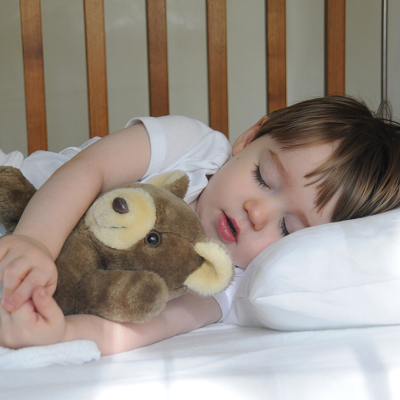Toddler Sleep
Sleep can get complicated in the toddler years. Toddlerhood embodies heightened awareness, increased separation anxiety, development of imagination, big life changes, and a demand for independence. It’s no wonder sleep can start to unravel quickly.
For the purpose of this post, toddlers will be referred to as ages 18+ months.
Life Changes
Let’s start with the big changes that affect toddler sleep and often happen between ages two and three…
- Potty Training
- Preparation and arrival of new sibling
- Changing bedrooms
- Toddler Bed Transition
- New daycare or start of Pre-school
- Move to a new house
While your toddler might not experience ALL of these, I can bet they will run into at least two big changes during this age range. Experiencing multiple changes in the same year let alone any at the same time will have a huge impact on a toddler. And in a world where toddlers have very little control and get to make very few decisions in their life, any sort of detour from their routine is going to derail them. And that can affect sleep, too.
Just as I discussed in the infant sleep post, a routine provides non-verbal communication. And a consistent routine builds trust, safety, and shows respect. Toddlers THRIVE on routine. They LIKE knowing what is next. They might not always understand your explanations, but your actions speak louder than your words. Providing a stable routine helps manage their expectations and their reaction. Which is why you always hear sleep consultants harp on a bedtime and nap time routine for consistent sleep!
Have A LOT of patience and grace during these big life changes. Get on your child’s level, look them in the eyes, hold their hands, and speak to them calmly in a way they can understand and that shows respect. This doesn’t just include disciplinary measures, but it includes discussing the arrival of a new sibling, preparing to move to a new bed or room, etc. They might not understand 100% of what is happening, but they pick up more than we think.
Make your toddler part of any big changes and make it fun! Get excited when you talk about a new sibling. Allow them to be part of the nursery decorating process and preparation. Read books about new siblings. Talk about ALL the things they will be able to do with a sibling one day.
If they are moving to a new room to make way for a new baby, that is going to be a sensitive issue. You don’t want your child to feel like they are being pushed aside and replaced. Allow them to pick a paint color for their room, pick a decoration, new bedding, etc. Talk about how wonderful this new room will be and how much you love this new room. If they are moving into a new bed, include them in the process of picking out new bedding or the new furniture. They will LOVE being included and it will get them excited about the process.
I DO NOT recommend moving your child to a toddler bed or a big kid bed BECAUSE a sibling is coming. You will do a lot more damage to sleep by removing them from the crib for the sibling. Keep your child in the crib as long as possible. Moving them before they are ready will hurt sleep. This applies to potty training, too. Trying to potty train quick before the new baby comes adds a lot of unnecessary pressure and stress during an already stressful time. It’s OKAY if your child is not potty trained BY the due date. I have known a lot of parents expecting baby 2 to quickly move baby 1 into a new bed (and room) and potty train before the arrival of a new baby. Sleep was impacted in a huge way and is A LOT harder to get back on track.
Heightened Awareness and Separation Anxiety
Toddlers heightened awareness and separation anxieties can be a hinderance to sleep. While it is easier to explain things to them because of their increased awareness, they now know their surroundings and understand what it means when you leave. Fear is a VERY real thing to them. And the fear of being without you is scary. ALWAYS reassure them you will be back for them. Always say goodbye to them, even if they are crying and reaching for you. It is better to say goodbye with a kiss and hug and tell them you will be back then to sneak out without their knowing.
Sometimes separation anxiety is worse at night because they know they will be without you for long stretches. Spend LOTS of time playing with them, especially in their room. Be intentional with your time with them. Phones away. Get on their level, let them lead the way, get involved. THAT means more to them than anything you could buy. Remember, the separation anxiety is just a phase. They WILL outgrow it.
Imagination and Nightmares
Around age 2 imagination REALLY starts to ramp up. It is so fun to watch them imaginary playing and even starting to solo play. But it can also mean fear and nightmares especially at bedtime. I swear I am the most G-rated mom when it comes to parenting. I know how irrational fears and nightmares can play a big part in sleep issues for toddlers. If your child is experiencing nightmares, here are some strategies to combat the fears.
- Create “sweet dream” spray. Fill a spray bottle with water and keep it bedside. Have your child spray once or twice before bed as a way to ensure sweet dreams for the night. You could add lavender essential oils if you want, too.
- Room Walk. If your toddler starts talking about monsters under the bed, do a room walk every night before lights out. Walk all the corners of the room, look in the hamper, under the bed, inside the closet or toy chest, etc. Physically show them nothing exists.
- Introduce a nightlight.
- Allow them to sleep with a special stuffed animal.
- Spend time in their room playing. Have a dance party and really get the giggles going! Playing, giggling and having fun in their room will help replace the scary associations in their room and make it okay to be in their room outside of just sleep. Make sure you are present, so they know how much YOU love their room too.
- Bedtime Pass. Offering a physical pass your toddler can trade in, at a time of their choosing, for one more snuggle, one more kiss/hug, one more book, one more sip of water, one more song. It helps reinforce independence. THEY get to decide when to use the pass, giving them a much-needed sense of control
- Make the night less scary and more fun by having a stargazing walk when it’s nice out, or roasting marshmallows by a campfire, or having dinner by candlelight.
- Always, always acknowledge your child’s fears. Get on their level, look them in the eyes, allow to tell you what is bothering them, and acknowledge their fears. Don’t tell them it’s stupid or dismiss anything they’re saying or say it’s not real. It is to them! Nod your understanding AND verbalize you hear them. Let them know they are safe in their house and their room. Everyone is safe. Then move on to one of the solutions above as a plan of attack.
Independence
Demand for Independence. OH HERE WE GO. You’ve heard of the terrible twos. But has anyone told you, “three is worse?”
A lot of behavior “issues” stems from a need for independence and choices. Whenever you can, provide outlets for these choices, especially during your bedtime routine. Avoid the bedtime battlefield by letting your child choose their PJS and books for the night. If they have a hard time making decisions or use this opportunity to stall or negotiate, allow them to choose between TWO pre-selected PJs or books. Sometimes providing a whole bookshelf or rack of PJs is too overwhelming. You can also let your child turn out the light, turn on the sound machine, turn on the nightlights, etc. They should feel like they are leading the routine now! Giving them a sense of control and feeling like they are making choices right before bed makes the process smoother.
Putting your child to bed feeling fulfilled, loved and heard is one of the best sleep and parenting practices you can offer.
If your toddler is struggling with sleep, or you need help establishing a consistent routine you can ACTUALLY stick to, visit our services page. I have a toddler package that is perfect for you!
Sweet Dreams!


Recent Comments